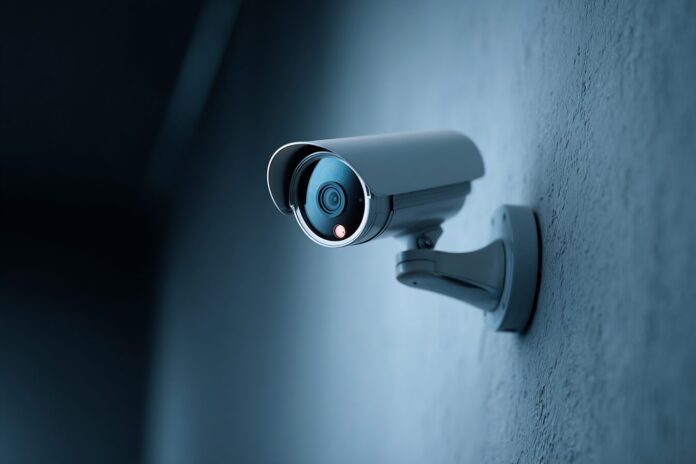Understanding the Urgent Advisory: Why Israeli Citizens Are Being Warned
The recent surge in cyberattacks amid escalating geopolitical tensions has thrust cybersecurity into the spotlight across Israel. Most importantly, authorities are now urgently advising residents to turn off or secure their home security cameras because the threat from Iranian hackers has grown increasingly sophisticated. This advisory is issued amidst reports of intrusions that coincide with other cyber incidents in the region.
Moreover, the warning comes at a time when both traditional and digital warfare tactics are being combined, thereby increasing the complexity of national security challenges. Because the digital domain now plays a central role in conflict dynamics, even ordinary households must adopt proactive measures to safeguard their privacy. National and international reports, such as those found on The Hacker News, emphasize that these disruptions are part of a broader trend that blends cyber espionage with media manipulation.
How Iranian Hackers Exploit Home Surveillance Systems
According to multiple Israeli officials, Iranian cyber operatives are skillfully targeting online-connected security cameras throughout the country. Most importantly, the exploitation is often facilitated by easily guessed passwords or default settings. By taking advantage of such vulnerabilities, these hackers can access live feeds and monitor movements in real time.
Because many consumers opt for budget security solutions that lack robust protection, the risk is compounded in everyday settings. Therefore, these intrusions allow attackers not only to gather sensitive information about individual households but also to collect data vital to military strategies. In fact, recent insights from CyberNews have detailed how these weak security measures have been leveraged to observe military deployments and logistical arrangements [CyberNews], further clouding the boundary between private and national security.
The Safety Risks of Compromised Home Cameras
Compromised cameras extend harmful impacts far beyond individual privacy breaches. Most importantly, when home or agricultural surveillance systems are infiltrated, the leaked information could assist adversaries in understanding troop movements and strategic positions. Because such footage may reveal the precise location of military installations or even routine patrols, the stakes are significantly heightened for national security.
Furthermore, the misuse of this data can trigger a series of unintended consequences. For example, surveillance feeds might be used to misdirect or plan more aggressive cyber and physical attacks, as recently reported in several analyses including information from Radware. Besides that, such breaches undermine trust in modern security systems, thereby prompting urgent calls for upgraded defenses and better consumer practices.
Official Response: Security Warnings and Public Guidance
In response to these alarming developments, the Israeli government is taking decisive steps to alert its citizens. National advisories have been reinforced, urging users to either disconnect their home surveillance systems during periods of high risk or to rigorously enhance their digital security. Most importantly, cybersecurity experts have rallied to provide clear guidelines and assistance. As noted by former deputy director general of the Israel National Cyber Directorate, Refael Franco, every precautionary measure counts in these tense times, and every wise digital habit can contribute to overall security.
Because these incidents exemplify the growing threat landscape, official recommendations emphasize immediate and proactive measures. Authorities encourage not only turning off cameras but also updating device firmware, setting strong passwords, and enabling two-factor authentication (2FA) as mandatory practices. These steps are crucial in minimizing risks, as further elaborated by updates found on TechSpot.
Simple Steps to Protect Your Digital Privacy
Securing your home network is easier than you might think. Most importantly, turning off non-essential cameras during high-alert periods is a simple yet effective strategy. Because default security settings often fall short in protecting against advanced hacks, replacing them with robust configurations is essential.
In addition, taking incremental steps such as changing default passwords, enabling two-factor authentication, and routinely updating software can drastically reduce vulnerabilities. Therefore, citizens are advised to assess their current digital setups and invest in devices that offer enhanced security features. Resources from various cybersecurity platforms further stress that these changes are not only necessary for individual safety but serve a broader purpose in national defense.
The Bigger Picture: Cyber Warfare’s Impact on Everyday Life
Cyber warfare has evolved into an omnipresent threat that transcends traditional combat methods. Most importantly, technological vulnerabilities in everyday devices, such as home security cameras, now present critical loopholes that adversaries can exploit. Because modern conflicts often intertwine digital and physical domains, securing simple IoT devices has become as crucial as protecting military systems.
Moreover, the events unfolding in Israel underscore a global shift where cybersecurity intersects with national defense. This intersection prompts ordinary citizens to remain vigilant, as highlighted in recent discussions across reputable news sources, including i-HLS. Besides that, the global community is urged to adopt a collective approach to cyber readiness, ensuring personalized security measures also contribute to national resilience.
What Can Citizens Do Going Forward?
Staying informed is the first step to fortifying digital defenses. Most importantly, citizens must follow updates from trusted sources to understand evolving threats and necessary precautions. Because the landscape of cyber warfare is continually changing, individual actions like updating passwords or disabling cameras during crises can make a significant difference.
Furthermore, building a habit of regularly reviewing and updating one’s digital security settings can empower households against future attacks. Therefore, in these uncertain times, valuing digital hygiene alongside traditional security measures is critical. Not only do these practices help protect personal privacy, but they also enhance the overall security framework of the nation, reinforcing the resilience against potential cyber threats.



